What is a compensator for Glock 17? 🧐
It is a firearm accessory designed to reduce the recoil of the pistol during firing. This device is typically attached to the barrel of the Glock 17 and redirects some of the gases generated by the firing of the round to help counteract the upward recoil force. This results in reduced muzzle rise and allows the shooter to maintain better control over the firearm.
Features 📚
A compensator for a Glock 17, or any other firearm, can come in various designs and configurations, but here are some common features and characteristics you might find:
✳️ Material: Compensators are often made from durable materials like aluminum or steel to withstand the stress and heat generated during firing.
✳️ Threaded Barrel Compatibility: Many compensators are designed to attach to Glock 17 barrels with threaded muzzles. This requires the pistol to have a threaded barrel or an adapter.
✳️ Multiple Chambers/Ports: Compensators typically have multiple expansion chambers or ports that redirect gas upward and sometimes to the sides. The number and design of these ports can vary between different models, impacting the effectiveness of recoil reduction.
✳️ Easy Installation: Compensators are generally designed for easy installation, often requiring a simple screw-on attachment to the threaded barrel.
✳️ Effective Recoil Reduction: The primary function of a compensator is to reduce recoil and muzzle rise. Look for a compensator that is known for effectively mitigating these factors, which can improve accuracy and control.
Benefits 💣
Adding a compensator to a Glock 17 can offer several benefits for shooters, depending on their specific needs and preferences. Here are some of the advantages:
💥 Reduced recoil results in less muzzle rise, meaning the pistol’s front end stays on target more effectively after each shot. This leads to faster target reacquisition and better accuracy.
💥 A compensator can contribute to improved accuracy by minimizing muzzle movement. This is particularly valuable in competitive shooting sports where precision is crucial.
💥 With less muzzle rise and recoil, shooters can fire follow-up shots more quickly and accurately. This can be essential in self-defense situations or when engaging multiple targets.
💥 Reduced recoil and improved control can boost a shooter’s confidence, leading to better performance on the range or in self-defense scenarios.
💥 Using a compensator during training can help shooters develop better recoil management and trigger control skills, which can translate to improved performance when shooting other firearms.
Should you use it? 🤔
Whether or not you should use a compensator on a pistol, including a Glock 17, depends on your specific needs, preferences, and the intended purpose of the firearm. Here are some factors to consider when deciding whether to use a compensator on a pistol:
| ➡️ Recoil Management: | If you struggle with managing recoil or desire better control over your pistol during rapid-fire or follow-up shots, a compensator can be a valuable addition. It reduces muzzle rise and makes the pistol more manageable. |
| ➡️ Shooting Sports: | In competitive shooting disciplines such as USPSA (United States Practical Shooting Association) or IPSC (International Practical Shooting Confederation), where speed and accuracy are paramount, compensators are commonly used to gain a competitive edge. |
| ➡️ Self-Defense: | For self-defense purposes, the choice of a compensator is less clear-cut. While reduced recoil and muzzle rise can be beneficial, compensators can also make the pistol bulkier and more difficult to conceal. Additionally, the added noise and flash from redirected gases may be disorienting in close-quarters encounters. |
| ➡️ Cost and Availability: | Compensators can vary in price, and not all models are readily available for all pistol types. Consider your budget and the availability of compatible compensators. |
😊 In summary, whether you should use a compensator on a pistol like the Glock 17 depends on your intended use, skill level, and comfort with the modifications. It’s essential to weigh the advantages and disadvantages, conduct thorough research, seek professional advice if needed, and consider how the addition of a compensator aligns with your specific shooting objectives and local laws.
Best Glock 17 Compensator
1# Agency Arms 417 Glock 17/19/34 Gen4 Compensator
View on OpticsPlanet View on Brownells
The Agency Arms 417 Glock 17/19/34 Gen4 Compensator is a top-of-the-line compensator designed for select Glock Gen 4 models. It features a 2 chamber design with 2 vertical ports and 1 side port, making it one of the most effective compensators on the market. Additionally, it features a front sight hole that allows you to transfer your existing front sight from your slide to the compensator. It’s made of high-quality 7075 aluminum and is compatible with the G17, G19, and G34. Overall, it’s an excellent choice for anyone searching for a high-performance compensator that delivers exceptional results.
2# Agency Arms 417 Dual Port Barrel Compensators
The Agency Arms 417 Dual Port Barrel Compensator is a must-have for anyone looking to improve their Glock’s performance. As a result of our tests, we determined that this compensator is designed for select Glock Gen 5 models and features a 2-chamber design with vertical ports on the front and side. It also has a front sight hole, so you can transfer your existing front sight from your slide to the compensator. The 417 is compatible with the G17, G19, G19X, G34, and G45.
3# ZEV Technologies Pro Glock V2 Compensator
View on OpticsPlanet View on Brownells
The ZEV Technologies Pro Glock V2 Compensator is a must-have for anyone who wants to take their shooting to the next level. This compensator reduces muzzle rise and felt recoil, giving you more control over your shots. The contoured porting and enlarged guide rod channel also help improve accuracy, making this an ideal choice for competition shooters or anyone who wants to up their game. The mounting system is easy to use and allows you to install or remove the compensator without needing any thread-locking compound. Whether you’re using it on a G19 or any other 9mm Glock model, this compensator is sure to give you an edge. So don’t settle for anything less, get this compensator and take your shooting to new heights.
4# Trybe Defense Universal Double Port Full Size Compensator
The Trybe Defense Universal Double Port Full Size Compensator is the perfect choice for anyone looking for maximum durability and resistance to wear and tear. It is heat-treated for maximum durability, and the surface Rockwell hardness is 25 HRc. Our findings show that the compensator also reduces muzzle rise and sensed recoil, making it an ideal choice for shooters who demand the best performance from their firearms. This universal compensator also fits all full-sized 9mm firearms, making it a versatile option for a variety of applications.
5# Killer Innovations Velocity Glock 17/19 Gen 4 Barrel Compensator
Searching for a compensator that breaks the mold? Notice the Killer Innovations Velocity Glock 17/19 Gen 4 Barrel Compensator. This unique compensator significantly reduces recoil and muzzle climb and attaches in a brand-new way that is completely different from any other compensator on the market. This revolutionary attachment system has a few advantages over traditional methods. First, it can be installed and removed without using tools when using our Velocity Mod 2 barrel. This makes cleaning your Glock a whole lot easier! Second, the compensator pushes back to the thread shoulder, so you know it’s attached correctly and securely. Third, the special design of the attachment system means that there is no need for set screws or welds, which could potentially damage your barrel. So if you need a top-quality compensator that offers innovative features and superior performance, choose this one. You won’t be disappointed!
6# Tyrant Designs T-Comp Glock Compensator
If you’re in the market for a compensator to fit your 1/2-28 threaded barrel Glock that will reduce muzzle rise and felt recoil, check out the Tyrant Designs T-Comp. It is a machined compensator that is compatible with Glock models 19, 34, and 43 and requires no modification to your firearm. Our research has shown that installation is quick and easy, using the supplied 16mm wrench, and once installed the T-Comp will fit most G34 holsters. The T-Comp also works with almost any grain ammunition. So don’t miss out on this great product, order your compensator today!
7# Tyrant Designs Universal 9mm Compensator
The Tyrant Designs CNC Universal fit 9mm Compensator, known as the Uni-Comp, has been designed to fit any 28-threaded 9mm barrel! Whether you own a Smith and Wesson, Glock, Sig Sauer, CZ, Walther, or ANY other 9mm firearm! It dramatically reduces muzzle rise and sensed recoil, allowing much quicker target re-acquisition. Compatible with 28 threaded barrels their compensator requires no modification to your 9mm firearm. The Uni-Comp works on almost any grain ammunition and maintains a very small profile to help aid against printing for concealed carriers. This compensator is the best way to reduce muzzle rise and felt recoil on your 9mm firearm! With its simple installation and universal fit, there is no reason not to try one out today!
8# Primary Machine Glock Stealth Compensator
View on OpticsPlanet View on Brownells
The Primary Machine Glock Stealth Compensator is the perfect way to maximize the performance of your Glock pistol. This compensator is designed to fit any open-ended Glock holster, and features set screws that keep it securely in place. When we tried this product the anodized finish ensured durability, and the billet aluminum construction provided lasting reliability. The compensator also adds approximately 1.2-1.3″ to the overall length of the gun, making it more versatile for a variety of shooting applications.
9# Strike Industries G5 Mass Driver Compensator
Introducing the Strike Industries G5 Mass Driver Compensator – the perfect solution for those who want to reduce recoil without sacrificing performance. The G5 Mass Driver Compensator eliminates the need for a threaded barrel, making it 50-state legal, and its widened bore reduces baffle strikes and keyholing rounds. Additionally, its 2.5mm relief cut at the top rear of the comp prevents damage to the face of the slide, while its blended, no-snag profile ensures Compatibility with most open-bottom holsters. Finally, the compensator’s precision CNC machined construction and counter-recoil design make it the perfect choice for those looking to improve their shooting experience.
10# Dark Hour Defense Glock Stand-Off Device
The Dark Hour Defense Glock Stand-Off Device is designed to give you the best possible accuracy and performance from your Glock pistol. It is made from high-quality materials and comes in a black finish. Using this product, our team found that the anodized finish gives it a durable, tough look that will stand up to the elements. The compensator and rail help to improve accuracy and make the gun more comfortable to shoot.
11# Wasatch Arms Glock Compensator
If you want to improve your Glock shooting skills, consider using the Wasatch Arms Glock Compensator. This bad boy is designed to decrease recoil by 60-80 percent, letting you shoot faster and more accurately. Through trial and error, we found that it also significantly reduces muzzle rise, making follow-up shots a breeze. Plus, it just looks darn good on your gun. Quick and easy to install, this compensator is a must-have for any serious shooter.
12# Chaos Gear Supply Official Qube Compensator
The Official Qube compensator from Chaos Gear Supply is the first pistol compensator that doesn’t require set screws. It is made from durable 17-4 stainless steel, with 1/2×28 threads for compatibility with most barrels on the market. It’s just 1.25″ long and weighs only 2.4 ounces, so it won’t weigh your pistol down or throw off your balance when shooting. And because it’s brand new, you can be confident it will provide years of reliable, trouble-free performance. Don’t settle for the second best – get this compensator from Chaos Gear Supply and rest assured you’re getting one of the best pistol compensators on the market today.
How to clean it? 🫧
Cleaning a compensator is an important part of firearm maintenance, as it can accumulate fouling, carbon buildup, and debris over time. Regular cleaning helps ensure the compensator functions properly and maintains its effectiveness. Here are the steps to clean a compensator:
🛑 Note: Always make sure the firearm is unloaded and the magazine is removed before starting any cleaning or maintenance.
🛠️ Materials Needed:
- ✔️ Cleaning solvent or gun cleaning solution;
- ✔️ Cleaning brush (nylon or brass);
- ✔️ Cleaning patches or cleaning cloth;
- ✔️ Bore brush;
- ✔️ A toothbrush or small cleaning brush;
- ✔️ Cleaning rod;
- ✔️ Q-tips or cotton swabs;
- ✔️ Safety glasses (recommended).
💡 Cleaning Steps:
| 💧 Disassembly: If necessary, disassemble the compensator from the firearm according to the manufacturer’s instructions. Some compensators may require removal for thorough cleaning. |
| 💧 Initial Inspection: Examine the compensator for visible carbon buildup, fouling, and debris. Pay attention to the ports and chambers. |
| 💧 Solvent Application: Apply gun cleaning solvent or solution to the fouled areas. Let it soak for a few minutes to help break down the carbon and fouling. |
| 💧 Brushing: Use a cleaning brush (nylon or brass) to scrub the interior and exterior surfaces of the compensator. Pay special attention to the ports and expansion chambers. A toothbrush or small cleaning brush can be useful for detailed cleaning. |
| 💧 Bore Brush: If the compensator has a bore or a pass-through hole for the barrel, use a bore brush to clean it thoroughly. Insert the brush from one end and scrub back and forth. |
| 💧 Cleaning Rod: Attach a cleaning patch or cleaning cloth to a cleaning rod and insert it through the compensator’s bore or into the expansion chambers to remove loosened fouling and solvent. |
| 💧 Cotton Swabs (Q-tips): Use Q-tips or cotton swabs to reach tight spots and corners that may be difficult to access with a brush or patch. Ensure that all fouling and carbon buildup are removed. |
| 💧 Final Inspection: Inspect the compensator to ensure it’s clean and free from any residue or debris. If necessary, repeat the cleaning process until it’s completely clean. |
| 💧 Reassembly: Reassemble the compensator onto the firearm if it was removed. Follow the manufacturer’s instructions for reassembly. |
| 💧 Function Test: After reassembly, conduct a function test to ensure the compensator functions properly and the firearm cycles correctly. |
| 💧 Lubrication: Depending on the manufacturer’s recommendations, apply a light coat of firearm lubricant or oil to the moving parts or surfaces of the compensator to prevent corrosion and maintain smooth operation. |
📌 Remember that cleaning and maintenance procedures may vary depending on the specific compensator model and firearm you are using. Always refer to the manufacturer’s instructions for detailed cleaning guidance and safety precautions.
FAQ 🤠
Conclusion 😉
Glock 17 compensators are a great accessory to have for your pistol. They help reduce recoil and muzzle flips, making it easier to shoot accurately. In this buyer’s guide, we’ve listed some of the best models available on the market. So whether you’re searching for a new one or just want to learn more about them, we hope this article helps you. Thanks for reading!😊❤️🔥
Affiliate Disclosure: Rotorm.com sometimes gets paid for listings, through sponsors or affiliate programs like Amazon, Optics Planet, Lucky Gunner, Brownells, Cabelas, Rainier Arms, 5.11 Tactical, Bass Pro Shop, etс. Clicking a link helps keep Rotorm.com free, at no extra cost to you!
About the author: Each article on our site is written by experts in survival and tactical equipment, gun enthusiasts, extreme travelers, military, law enforcement and desperate professionals, read about the author at the bottom of the article or visit "About Us" page.
Note: The views and opinions expressed in this article are those of the authors and do not necessarily reflect the official policy or position of any agency.

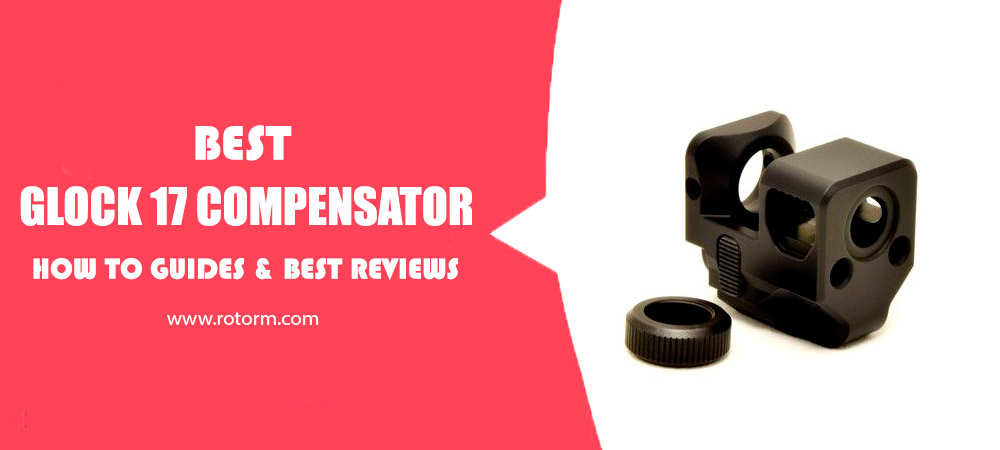
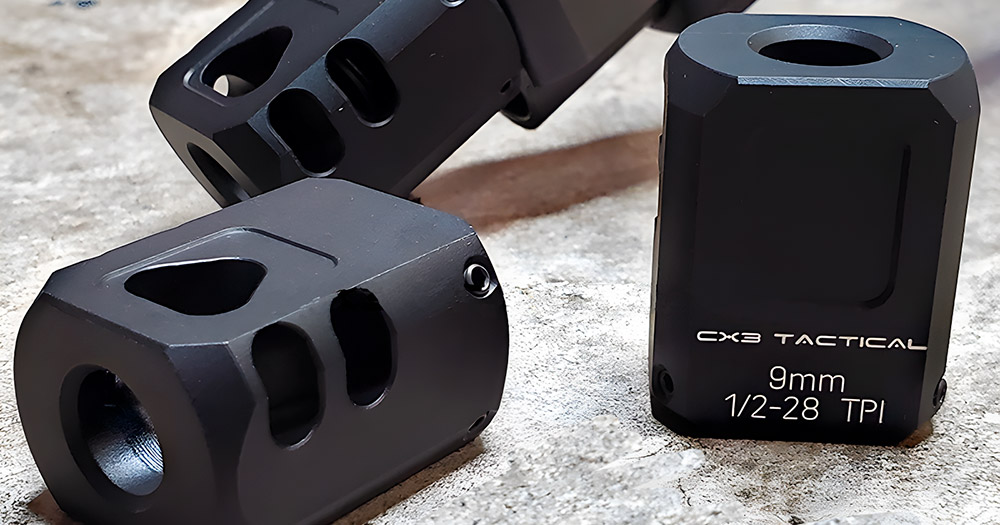
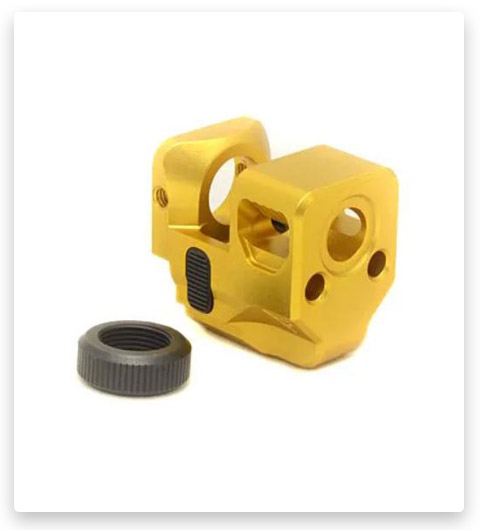
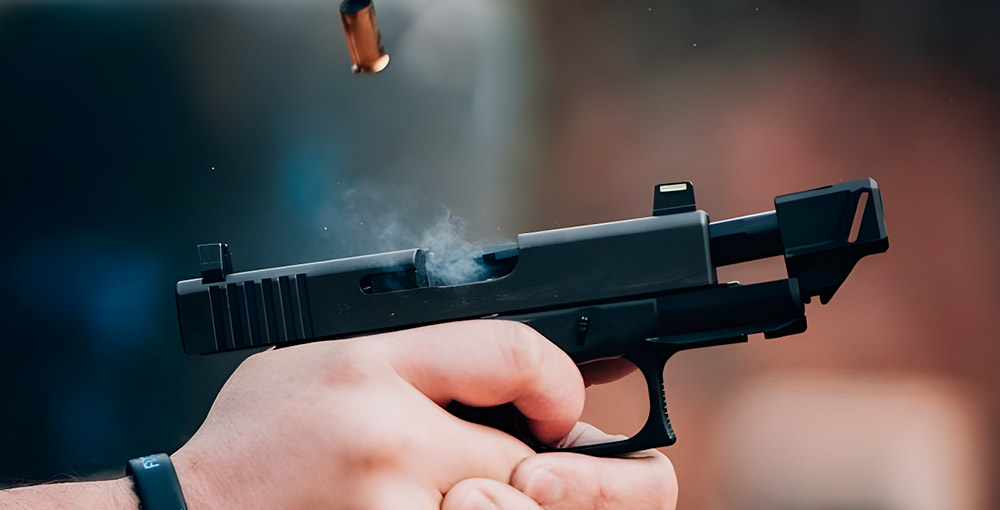












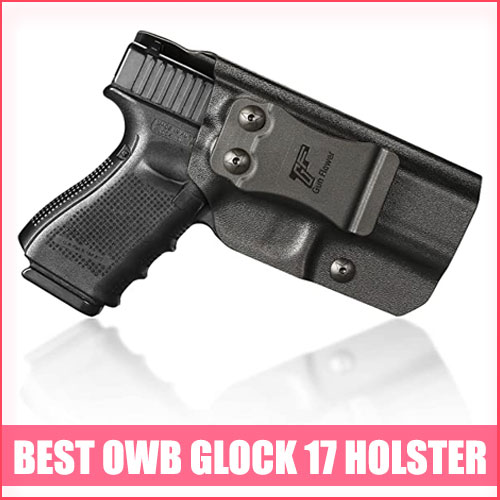
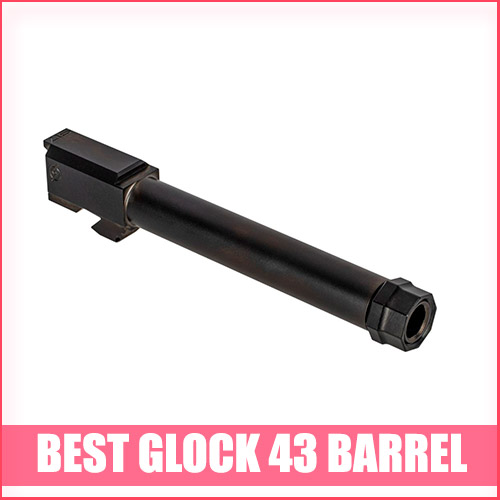
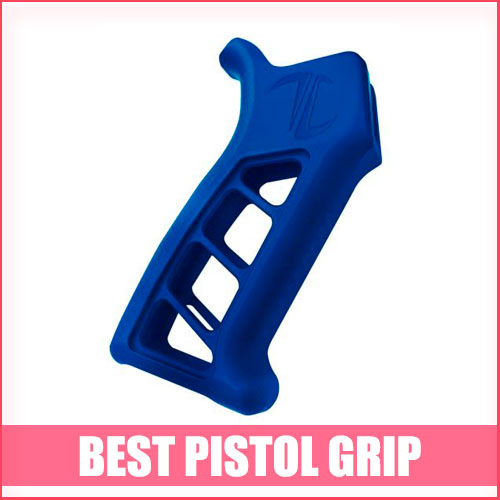
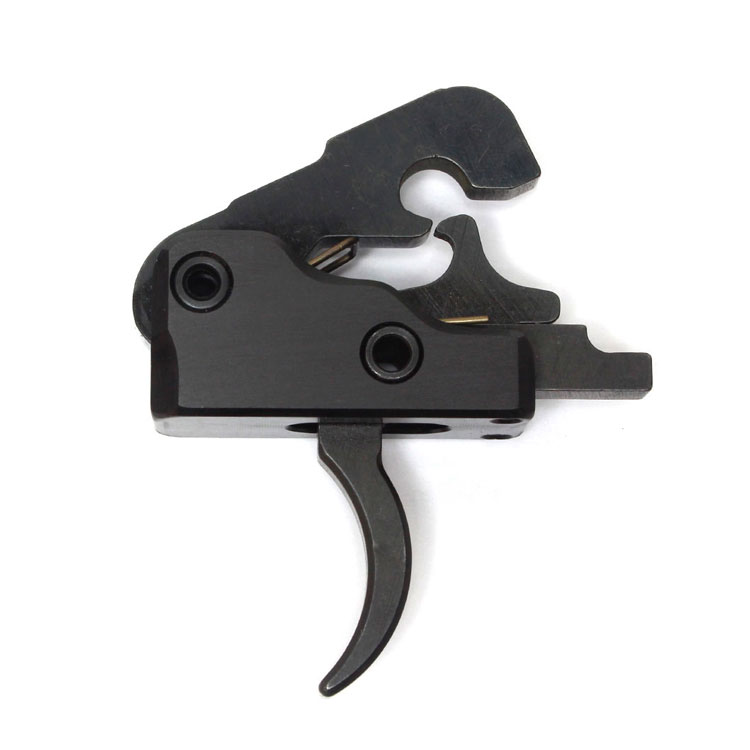
![Read more about the article Best Glock 23 Accessories & Upgrades [100% Ultimate Guide]](https://rotorm.org/wp-content/uploads/2023/01/иконка-3.jpg)
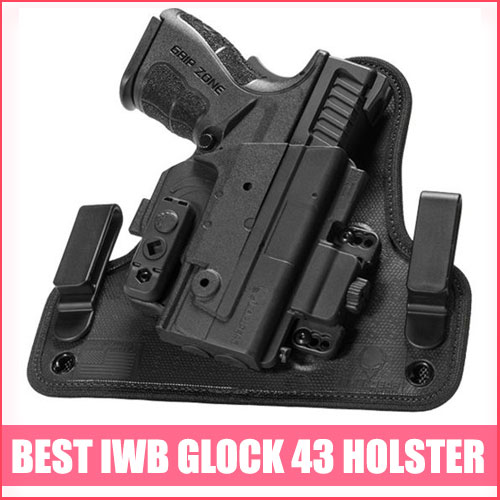
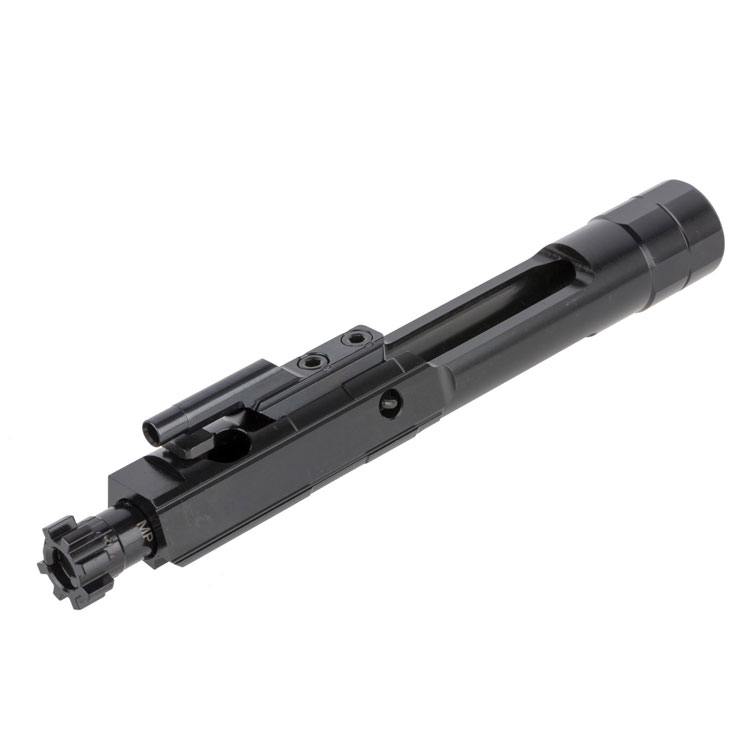
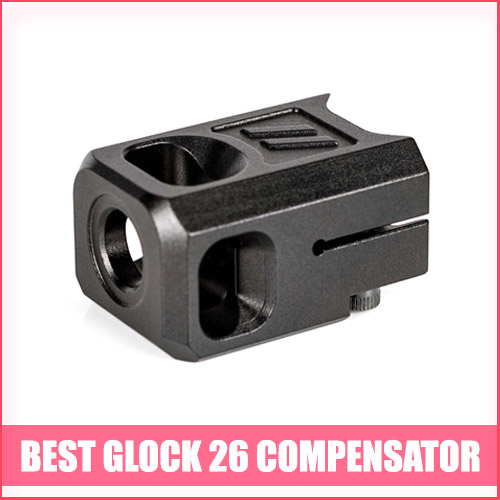
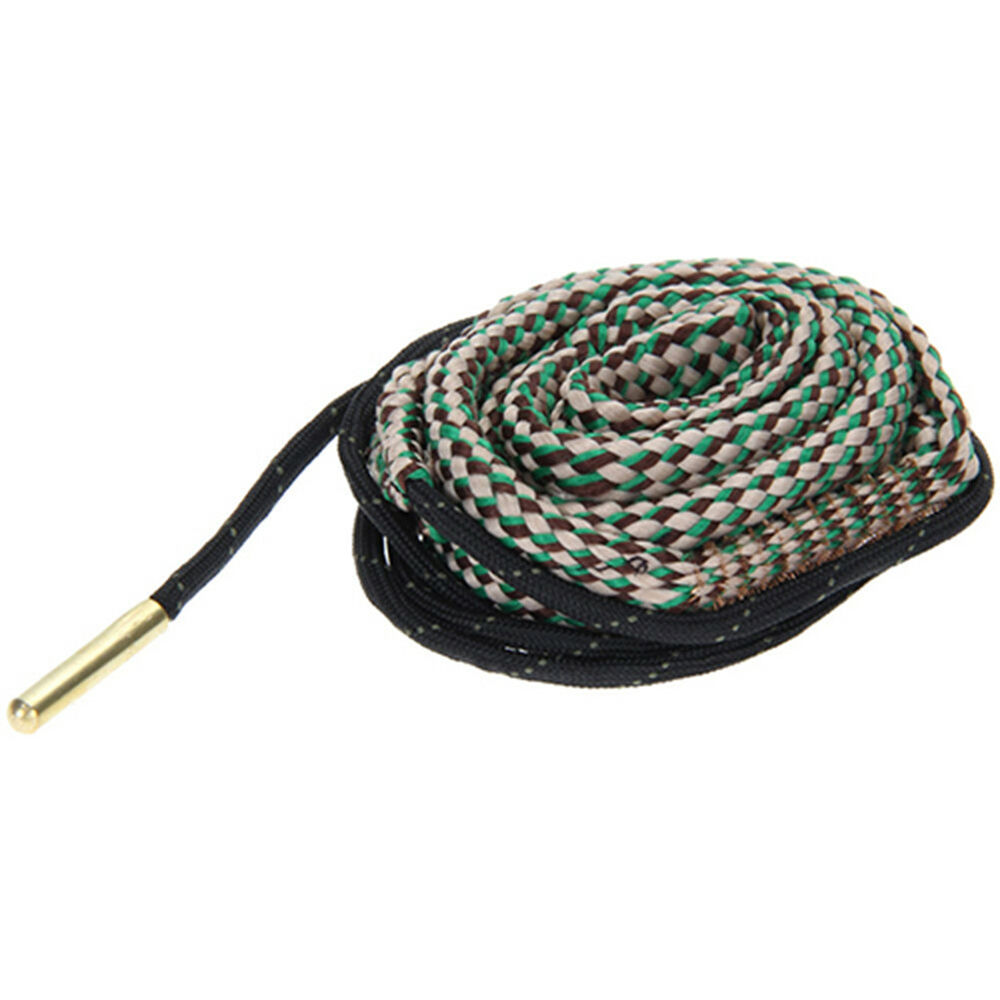
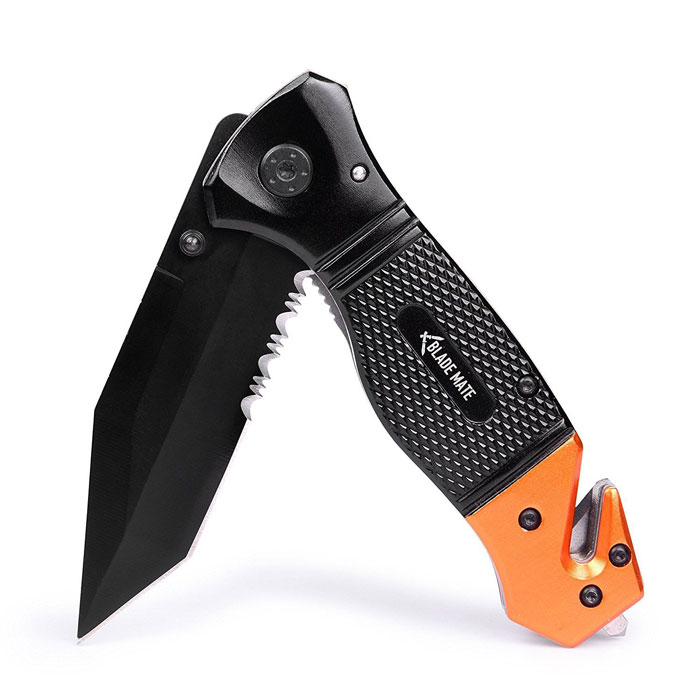
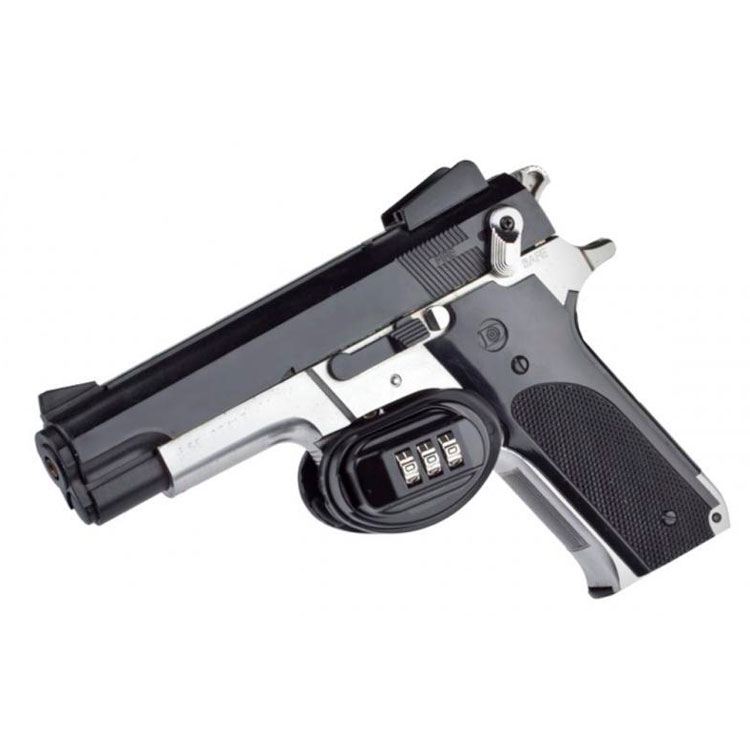
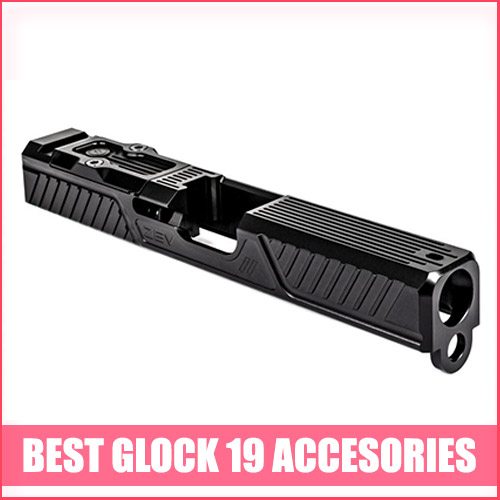
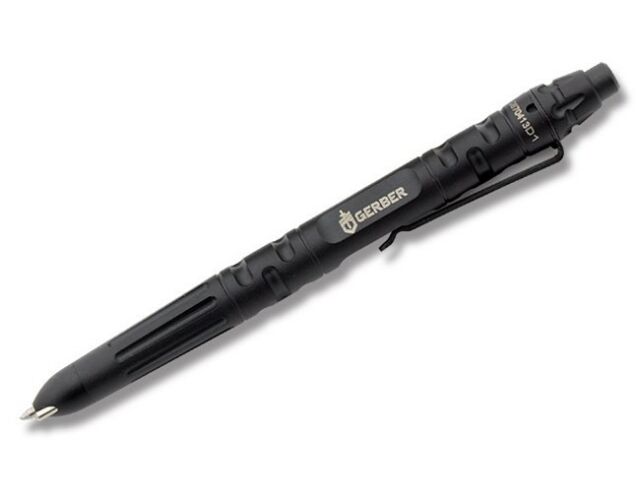
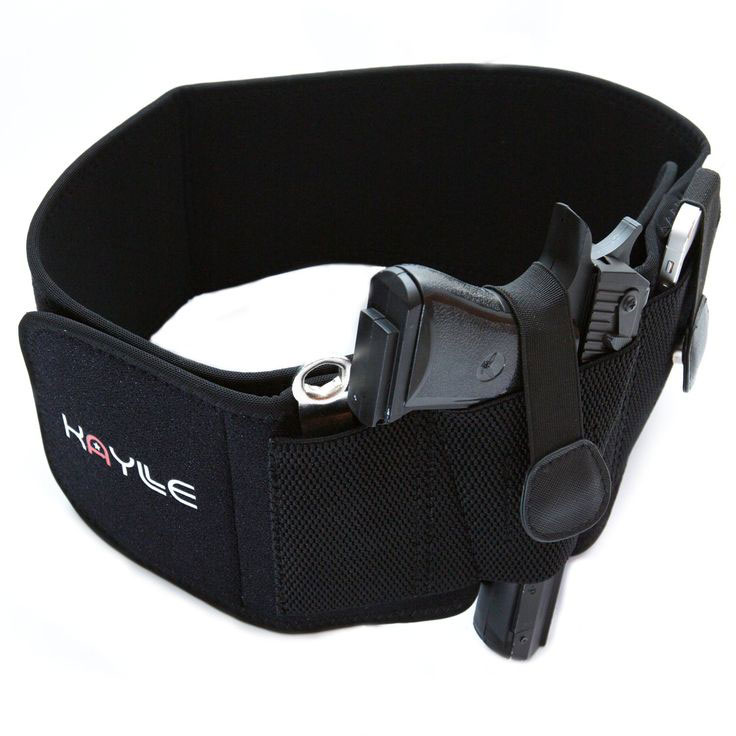
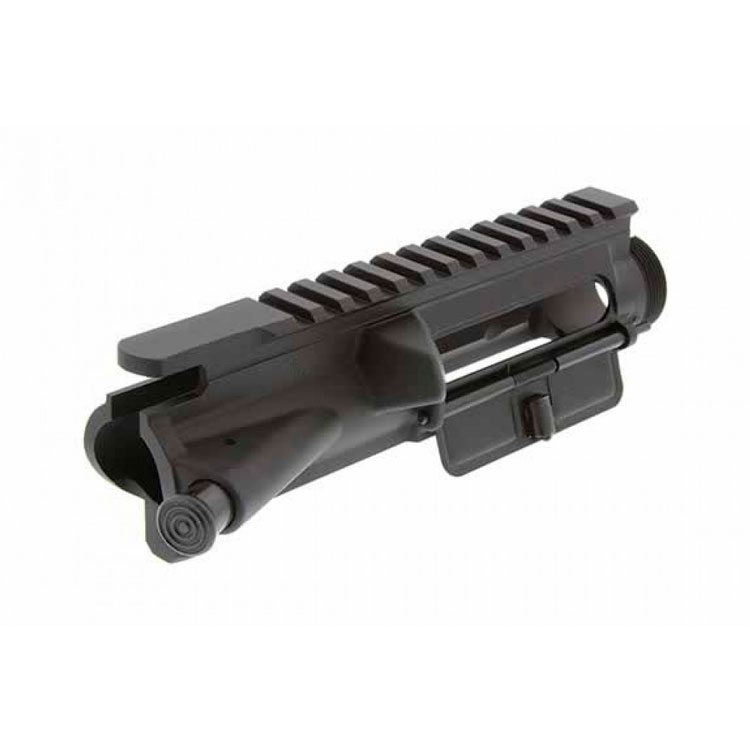
I adore my Glock 17; it fires like a dream. Recently, I stumbled upon the concept of compensators, and I’m fascinated by the idea of further improving recoil control. I’m curious if there are any downsides to getting a compensator, like the need to upgrade the spring. Has anyone out there had experience with this? If so, do you have any valuable tips to share?
I’ve come across some impressive compensators on the market, but I’ve heard that they can introduce reliability issues if your firearm isn’t properly tuned for them. I’ve heard that certain compensators may struggle with reliably feeding lighter rounds like 115gr unless you make some internal adjustments, such as swapping out the recoil spring. I’ve noticed that the Primary Machine Glock Stealth Compensator is often recommended as a top choice for effective compensators.
I’m currently in a bit of a dilemma regarding whether I should go for a Glock 17 or 34, and I’m trying to decide whether I should opt for a threaded barrel or not. Now, my question is why don’t I see compensators on Glock 17s or 34s as frequently? Is it because there’s not enough muzzle energy coming out of the barrel to make a noticeable difference in recoil reduction?
Muzzle energy isn’t a determining factor in how compensators function. Compensators operate by redirecting the gases that propel the bullet. The more gas expelled from the barrel, the more effectively a compensator works. However, it’s important to note that most compensators are optimized for use with 124gr projectiles or heavier. This ensures there’s enough recoil to cycle the slide even with the compensator’s gas redirection. Be prepared to adjust your return spring as well. If you’re willing to tinker with the setup, integrating a compensator into your Glock 17 setup will undoubtedly make shooting more enjoyable. I’d lean towards the Agency Arms 417 Glock 17/19/34 Gen4 Compensator for an extended sight radius.
I’ve been curious about giving the Agency Arms 417 Dual Port Barrel Compensators a try at some point, once I start feeling a bit more adventurous. Contrary to what some might think, I believe that a compensated Glock 17 isn’t as uncommon as it might seem. It’s a setup that many shooting enthusiasts appreciate and enjoy.
I’m in search of recommendations for a good compensator for my firearm. I’m also curious about compatibility – will any compensator fit my Glock barrel, or do I need a specific adapter for that? Additionally, I’m wondering if it’s possible to use real-steel compensators. Thanks in advance for any advice and guidance on this matter!
I’ve come across a Trybe Defense Universal Double Port Full Size Compensator priced at around 45 bucks, and I must say they seem quite sturdy and reliable.
I’m curious to hear from fellow Glock users who are also using compensators and to learn about the specific purposes they have for their Glocks and the results they’ve achieved with compensators. Please feel free to share your experiences!
I’ve been using a Strike Industries G5 Mass Driver Compensator that doesn’t require a threaded barrel, and I’ve not encountered any reliability issues with it. It has proven unreliable during practice sessions. I’ve found that not all ammunition works equally well with compensators.
I’ve got a variety of compensators in my collection, including both full-size and micro comps. In my experience, the full-size compensators tend to perform exceptionally well, effectively reducing recoil and muzzle rise. However, the micro compensators are somewhat less impressive, performing just okay. One pleasant surprise has been the Tyrant Designs T-Comp Glock Compensator, which is an affordable option but works surprisingly well.